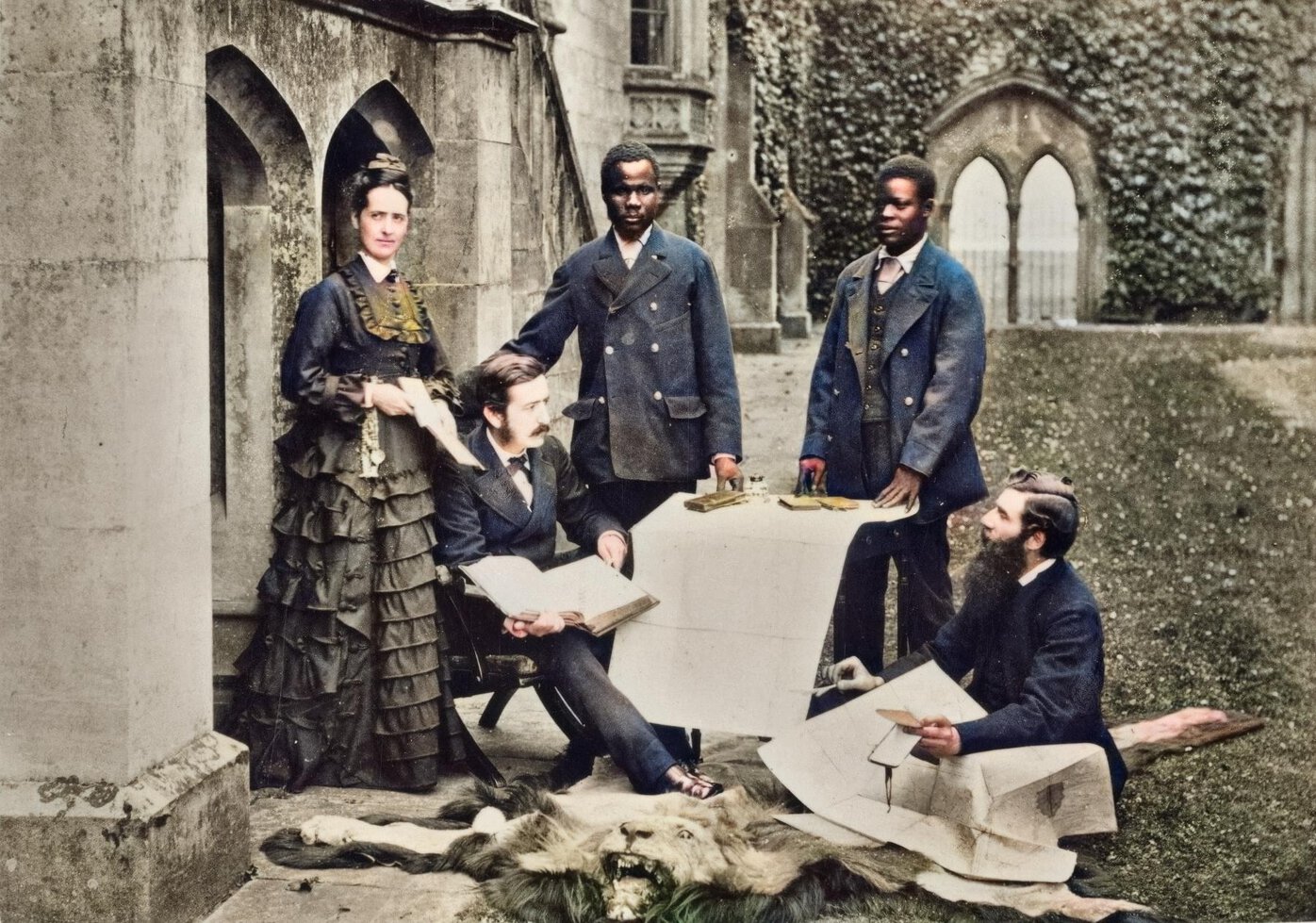Overview
One More Voice is a digital humanities recovery project that focuses on identifying, documenting, and critically engaging with the voices of racialized creators in British imperial and colonial archives. The name reflects the fact that there is always one more voice to recover from the archives. The voices take multiple forms and appear in multiple genres, including travel narratives, autobiographies, letters, diaries, testimonies, interviews, court records, treaties, maps, oral histories, genealogies, and vocabularies. One More Voice seeks to introduce these rich and diverse materials to broad academic and public audiences, but also acknowledges the impossibility of amassing the materials in a single place because of their dispersal across the archives.
Our project focuses on developing a critical and wide-ranging evaluation of the materials by using interpretive approaches and digital humanities strategies that expand existing scholarship. We indicate that recourse to the voices promises to transform common critical understanding of global history and literatures – particularly critical understanding rooted in Anglo-European intellectual traditions – while foregrounding perspectives that scholarship coming from such traditions has hitherto overlooked or silenced. Concurrently, the project underscores the fact that such recovered voices will not necessarily be completely authentic records of the original creators. The voices often, but not always, survive in mediated form, and so our project stresses the need for exceptional, highly-considerate critical practices when working with these voices.
The recovery work of One More Voice will always be incomplete due to the biased and fragmentary nature of imperial and colonial archives. It follows that our project does not seek to be totalizing and comprehensive, nor is its goal simply to add more voices to the nineteenth-century British historical and literary canons. Rather, One More Voice foregrounds the many racialized voices that exist in the archives of empire and, by doing so, asks critics and others to revise their understanding of the contents of these archives because of these frequently overlooked voices. The project also underscores the fact that all the voices from these archives must be read and understood as already embedded in a wider, intercultural, documentary contexts. Most notably, the project seeks to promote digital strategies and innovative scholarship that center racialized voices from the archives of empire and that model how others might take up similar work.
As part of this work, the project also rewrites the concept of authorship so that it encompasses archival contributions, a term of inclusivity that reverses the Eurocentric, exclusionary nature of literary “authorship” as it is usually understood. For those interested in applying postcolonial interpretive frameworks, decolonial methodologies, and other ways of knowing in their research and teaching, the project documents an assortment of primary materials – recovered archival texts and published book-length works as well as visual materials and motion pictures – that might play a foundational role in such a program of analysis and instruction. Yet One More Voice is not an archival project, at least not in the way that critics usually understand the term. The project seeks to identify and critically engage archival materials, but not necessarily to collect or preserve them since other initiatives and archives already do that work.
In contrast to such efforts, we operate in a relational capacity – in solidarity with and in support of other people and projects. We take up our work in the spirit of critical interventions like Social Justice and the Digital Humanities, Kim Gallon’s “Making a Case for the Black Digital Humanities,” Nicole Aljoe and Elizabeth Maddock Dillon's Early Caribbean Digital Archive, the scholarship of Christina Gish Hill and Csoba DeHaas on digitally representing indigenous peoples, and Cagle et al.'s “Anti-Racist Scholarly Reviewing Practices.” Our grant-funded initiatives, for example, center on creating race-conscious, cutting-edge scholarship while concurrently promoting structural change in the academy. We apply the majority of our funding towards the work of scholars of color, graduate students, early-career researchers, and contingent faculty. We use our site, along with its various practices (PDF), to create a welcoming space where such individuals can publish peer-reviewed research and take up significant experimental scholarship.
One More Voice has been created by members of the Livingstone Online project staff in partnership with many new collaborators and extends the long-standing ideals of that project in a new direction. Publication has been made possible by producing new scholarship while applying minimal computing principles and adapting open-access code and digital tools from other relevant projects. All original essays and critically-edited primary materials are released under a Creative Commons license and are available for immediate use in the classroom, in scholarship by others, and in other educational contexts. If our project speaks to you, we would love to involve you in our work.
Works Cited
Aljoe, Nicole, and Elizabeth Maddock Dillon. Early Caribbean Digital Archive. Boston: Northeastern University, 2017.
Cagle, Lauren E., et al. “Anti-Racist Scholarly Reviewing Practices: A Heuristic for Editors, Reviewers, and Authors.” Google Docs, 2021.
Gallon, Kim. “Making a Case for the Black Digital Humanities.” In Debates in the Digital Humanities 2016, edited by Matthew K. Gold and Lauren F. Klein. Minneapolis, MN: University of Minnesota Press, 2016.
Hill, Christina Gish, and Csoba DeHaas. “Digital Representation of Indigenous Peoples through Sharing, Collaboration, and Negotiation: An Introduction.” Museum Anthropology Review 12, no. 2 (2018).
Risam, Roopika, micha cárdenas, Jeremy Boggs, Ashley Byock, Vinamarata Kaur, Joan Lubin, Emily Sessions, Danica Savonick, and Sveta Stoytcheva. Social Justice and the Digital Humanities. 2015. Reprint, N.p.: N.p., 2020.
